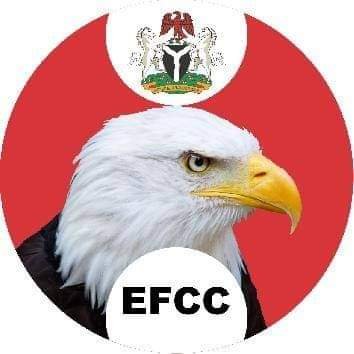The removal of the EFCC chairman will require the approval of two-thirds majority of both the Senate and the House of Representatives

The House of Representatives, on Thursday, took steps to strengthen Nigeria’s anti-corruption framework as it considered for second reading a bill seeking to amend the Economic and Financial Crimes Commission (Establishment) Act, 2004, to enhance the Commission’s institutional independence, operational efficiency, and accountability.
Leading the debate on the general principles of the bill, sponsor Rep. Yusuf Gagdi (APC, Plateau State) said the amendment was necessary to “modernise the EFCC’s legal framework and align it with global anti-corruption and anti-money laundering standards.”
According to him, when the EFCC was established in 2004, it provided Nigeria with a pioneering legal foundation for tackling corruption and financial crimes. However, he said, “two decades later, the landscape has evolved far beyond what the current law envisages.”
“Cybercrime, cryptocurrency manipulation, illicit financial flows, terrorism financing, and real estate-based money laundering have become prevalent,” Rep. Gagdi noted. “Yet, the EFCC operates under outdated provisions that do not adequately address those new realities.”
The lawmaker decried the lack of sufficient guarantees for the commission’s independence, which he said exposes it to “external influence and political interference.”
He also identified gaps in governance structure, weak coordination with other anti-corruption agencies, and unclear procedures for managing seized and forfeited assets.
ALSO READ: ‘We are not safe in rented buildings,’ EFCC pleads for more money
“Those deficiencies have created room for public mistrust, inefficiency, and loss of recovered proceeds,” he added.
Gagdi explained that the amendment bill seeks to ensure that the EFCC functions as an independent and transparent institution.
“This bill provides that the EFCC shall be independent and not subject to the direction or control of any person or authority in the performance of its functions,” he stated. “The removal of the chairman will require the approval of two-thirds majority of both the Senate and the House of Representatives, thereby securing the tenure and integrity of the leadership.”
The proposed amendment also seeks to broaden the Commission’s composition to include eminent Nigerians and enhance operational efficiency through new legal and regulatory powers.
“It is a decisive step towards strengthening Nigeria’s anti-corruption framework,” Rep. Gagdi concluded. “This amendment will not only enhance Nigeria’s global reputation but also promote good governance, economic stability, and public confidence in the fight against corruption.”
In his contribution, Chairman, House Committee on Financial Crimes, Rep. Ginger Onwusibe (LP Abia State), threw his weight behind the bill, describing it as a timely intervention.
“When the EFCC was established, there were so many crimes that we have today that were not foreseen,” Rep. Onwusibe said. “So, the amendment to this Act will help to checkmate some of these crimes that we experience today. I want to use all the energy I can afford to support that this bill be allowed to go for second reading.”
The bill was subsequently passed for second reading and referred to the committee on Financial Crimes for further legislative action.

